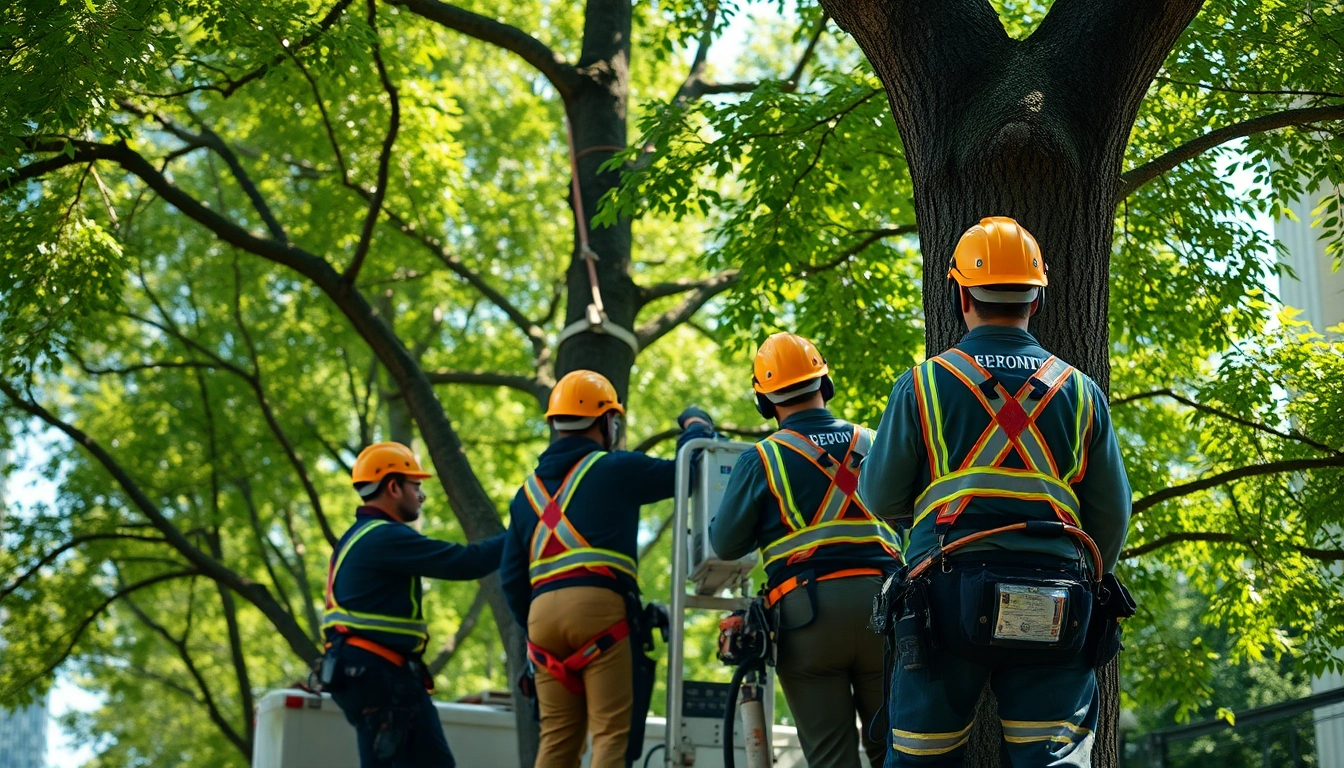
Understanding Emergency Tree Service
When it comes to taking care of trees, timing can mean the difference between life and death. Emergency tree services play a crucial role in managing situations that can pose risks to property and public safety. Understanding the nuances of emergency tree service is essential, whether you’re a homeowner, a property manager, or simply someone who values the safety of their environment.
What Constitutes an Emergency?
An emergency in the context of tree care typically arises when a tree or limb has fallen or is at risk of falling, causing potential harm to people or property. Given the unpredictability of nature, various circumstances might lead to the necessity of professional intervention.
Common Scenarios Requiring Immediate Tree Care
Some of the most common scenarios requiring immediate attention include:
- Severe Storm Damage: High winds, heavy snow, or ice can topple trees or branches.
- Fallen Trees or Limbs: Trees can fall unexpectedly due to rot or storm conditions, acting as hazards in roadways or structures.
- Tree Weakness: Trees showing signs of damage or decay may pose risks if timely care isn’t provided.
- Insect Infestation: Rapidly spreading pest infestations require immediate analysis to prevent further damage.
Why Prompt Response is Critical
Fast intervention can mitigate extensive damage. For instance, if a tree rests precariously on your roof, prompt removal could prevent further structural damage. Additionally, quick action may avoid safety hazards to neighbors or passersby. Not addressing an emergency can also lead to costly repairs, highlighting the importance of having a qualified emergency tree service readily available.
Choosing the Right Emergency Tree Service
Choosing the best emergency tree service can be daunting, especially under stress. Here are some tips to simplify the selection process and ensure you find the right professionals for your needs.
Key Qualities to Look For
When searching for an emergency tree service, consider these key attributes:
- Experience and Expertise: Look for a company that offers years of specialized experience in tree care, particularly for emergencies.
- 24/7 Availability: Emergencies can occur at any hour; select a service that provides round-the-clock assistance.
- Responsive and Reliable: The service should demonstrate a commitment to quick response times and follow-up communications.
Evaluating Certifications and Insurances
Certification from accredited bodies such as the International Society of Arboriculture (ISA) is a strong indicator of expertise. Furthermore, ensure the company carries liability insurance and workers’ compensation. This protects both you and the technicians, should an accident occur while they work on your property.
Reading Reviews and Recommendations
Don’t underestimate the value of customer reviews and referrals. Websites like Yelp and Google My Business often provide genuine client experiences. Additionally, asking local acquaintances for recommendations can point you towards trusted services. High ratings from satisfied customers usually indicate reliable performance.
Preparing for Emergency Tree Situations
Preparation is key when it comes to handling potential tree emergencies. Establishing a safety plan and understanding key tools can make a significant difference when time is of the essence.
Creating a Safety Plan for Your Property
Developing a safety plan allows you to act swiftly during emergencies. Start by mapping out your property and identifying trees that pose risks due to their proximity to structures, power lines, or pathways. Keep emergency contact numbers for tree services handy and brief your family or household on how to respond in case of a downed tree.
Essential Tools and Equipment for Homeowners
While professional help is often necessary, having essential tools can help manage minor tree issues and ensure safety:
- Handsaw or Chainsaw: For cutting smaller branches.
- First Aid Kit: Always important for any emergencies.
- Protective Gear: Gloves, goggles, and helmets that offer safety when performing any minor vegetation management.
When to Call for Professional Help
Assessing when to call for help can save you time and potential injuries. If the issue involves trees that are over 15 feet tall, those near power lines, or signs of decay in large branches, it’s best to seek professionals. They possess the necessary tools and expertise to address dangerous situations efficiently and safely.
Cost Considerations for Emergency Tree Services
One of the primary concerns regarding emergency tree services is cost. Understanding how various factors influence pricing can help you manage your budget effectively.
Factors Influencing Pricing
The cost of emergency tree services can vary widely based on several factors:
- Location: Urban areas may have higher rates than rural regions due to logistical challenges.
- Severity of Damage: More complex issues, such as large fallen trees that obstruct roads, generally cost more to remove.
- Time of Day: Emergency services at night or during weekends may incur extra charges.
Insurance and Coverage Insights
It is essential to consult your insurance policy to determine what tree damage is covered. Many homeowners’ policies may cover damage caused by fallen trees, including the cost of removal. Always keep a record of communications with your insurance agent to ensure you understand your coverage capabilities.
Budgeting for Tree Care Emergencies
Creating a budget for tree care can help alleviate stress. Regular maintenance, including inspections and proactive trimming, can significantly minimize the risk of an emergency. Allocating a specific fund for unexpected services can further cushion the financial impact.
Post-Service Steps for Tree Health
After an emergency tree service, it’s important to take steps to ensure the health of your remaining trees and the integrity of your property.
Assessing Remaining Trees for Potential Issues
Following emergency removals, evaluate other trees on your property. Look out for signs of disease, rot, or potential weaknesses. An arborist can help assess and identify any hidden problems that may lead to future emergencies.
Long-Term Care Tips Following Emergency Services
Long-term tree health often hinges on proper care. Consider these practices:
- Regular Pruning: Helps maintain tree health and aesthetic appeal.
- Watering and Fertilization: Ensures trees get essential nutrients and hydration, especially after tree loss.
- Pest Management: Taking preventive measures against insect invasions can safeguard the overall health of your landscape.
Engaging with Trusted Arborists for Future Maintenance
Regular engagement with accredited arborists can ensure that your remaining trees are as healthy and robust as possible. They can provide targeted strategies based on specific species or environmental conditions unique to your area, enabling you to reduce the risk of future emergencies effectively.








